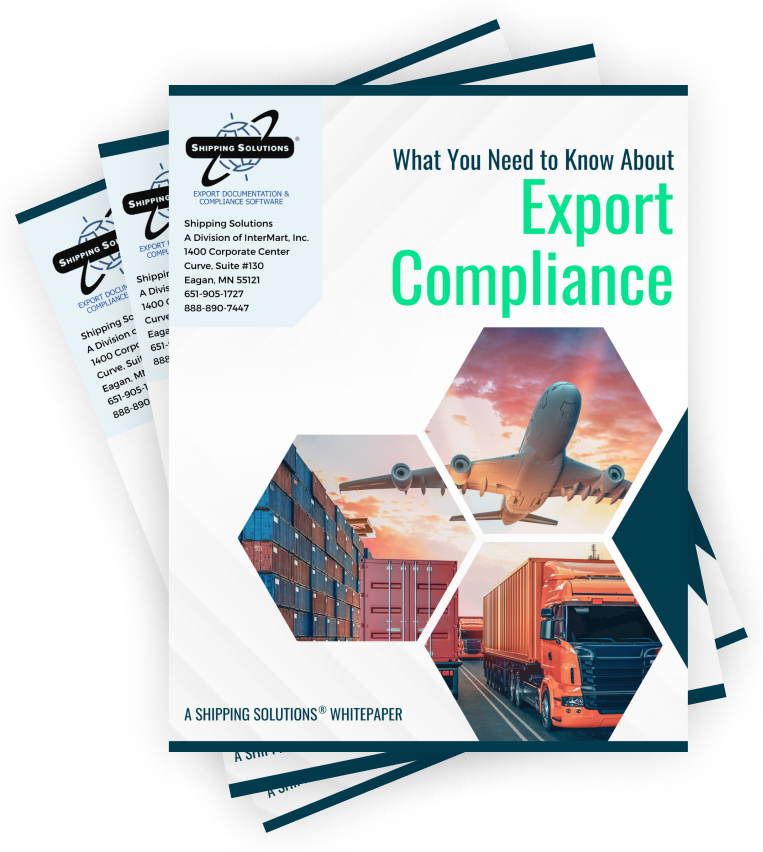The International Trade Blog Export Compliance
Avoid Export Violations on Your Domestic Sales
On: May 3, 2023 | By:  Kari Crane |
3 min. read
Kari Crane |
3 min. read

Did you know that even if your business only sells domestically, you could still be held liable for export violations? As a business owner, it's crucial to understand that there's always a chance that your products could be exported without your knowledge or consent, potentially putting you at risk for export violations.
According to the Export Administration Regulations (EAR), companies can be liable for export violations if they know or have any reason to know that their merchandise is going to be exported.
Companies that sell products domestically in the U.S. should take several precautions to ensure that they are not held liable for export violations, even if they are not the actual exporter of the merchandise. Here are some precautions that they should consider:
Know Your Customer
It's a good business practice to gather as much information as possible about the purchaser of your merchandise. Is the ultimate end user different from the purchaser? Will the merchandise be exported now or in the future; if yes, to whom? If your customer refuses to provide this information or gives you vague answers, their evasiveness is a potential red flag. The following articles will help you better understand what you need to know about your customer:
- No Bull: Export Compliance Means Watching for Red Flags
- The Importance of KYC and KYS: Building Trust and Minimizing Risks
- Export Compliance: The Importance of Knowing End Use and End Users
Have a Basic Understanding of Export Regulations
Companies that only sell domestically should still be aware of what regulations would apply to their products if they were exported. This will make it easier to spot red flags. They should also be aware of the entities or individuals who are restricted from receiving their products.
Our article 6 Basic Steps for Export Compliance is a good place to learn the fundamentals of compliance.
Use a Destination Control Statement
Adding a Destination Control Statement on all transactions is a good precaution to take to protect yourself in case the merchandise you sold to a domestic purchaser is unexpectedly exported from the United States.
Both Part 758.6 of the EAR and Part 123.9 of the International Traffic in Arms Regulations (ITAR) require that the Destination Control Statement appear only on the commercial invoice and not on other export documents that accompany the merchandise from the U.S. to its ultimate destination abroad. However, the ITAR regulations also require that this new statement, or a reference to this statement, be included within licensing, manufacturing and distribution agreements.
As defined by the regulations, the destination control statement must read:
These items are controlled by the U.S. Government and authorized for export only to the country of ultimate destination for use by the ultimate consignee or end-user(s) herein identified. They may not be resold, transferred, or otherwise disposed of, to any other country or to any person other than the authorized ultimate consignee or end-user(s), either in their original form or after being incorporated into other items, without first obtaining approval from the U.S. government or as otherwise authorized by U.S. law and regulations.
Maintain Accurate Records
Companies should maintain accurate records of all sales transactions, including invoices, purchase orders, and shipping documents. This can help to demonstrate compliance with export regulations and can provide evidence in the event of an investigation or audit.
The U.S. government expects 100% compliance with the EAR when merchandise is being exported from the United States even if your company is not responsible for the ultimate exportation. Ignorance of the law is not an excuse! You don’t want Uncle Sam knocking at your door for violating the EAR.
This is an adaptation and an update of an article that was originally written by Richard Palaikis and was first published in May 2009. It has been updated to include current information, links and formatting.

About the Author: Kari Crane
Kari Crane is the editor of Passages: The International Trade Blog. Kari joined Shipping Solutions after working as an editor, writer and designer at a major market newspaper in Texas. Kari has spent her career finding different ways to tell stories and make complex topics easy-to-understand, so she loves helping importers and exporters understand how to navigate the complex world of international trade.

